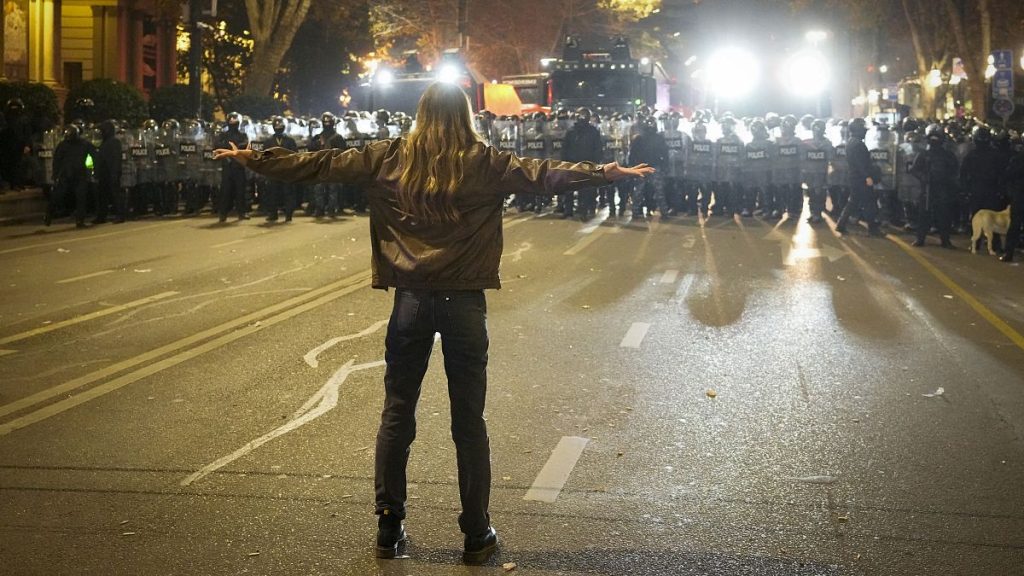The political landscape of Georgia has been embroiled in turmoil for over a week, sparked by contested parliamentary elections and exacerbated by the government’s decision to postpone EU accession talks. Pro-democracy protests, ignited by accusations of election rigging and concerns about democratic backsliding, have been met with a forceful response from the ruling Georgian Dream party, leading to hundreds of arrests and injuries. The international community, particularly European nations and the United States, have condemned the government’s heavy-handed tactics, calling for respect for fundamental rights and a de-escalation of tensions. The situation underscores the deep divisions within Georgia regarding its future direction and its relationship with both Europe and Russia.
At the heart of the unrest lies the disputed parliamentary election held on October 26th. The opposition alleges that the ruling Georgian Dream party, perceived as having close ties to Moscow, manipulated the election results to maintain power. International observers reported instances of irregularities, including violence, bribery, and double voting, fueling calls for a re-run of the election. The controversy surrounding the election results tapped into existing anxieties about Georgia’s democratic trajectory, with critics accusing the Georgian Dream party of increasingly authoritarian tendencies and a shift away from European integration.
The Georgian Dream party’s subsequent decision to shelve EU accession talks until at least 2028 further inflamed the situation. This decision, made in response to a European Parliament resolution criticizing the elections, was seen by many as a betrayal of Georgia’s European aspirations and a confirmation of the ruling party’s pro-Russian leanings. The protests, initially focused on the election results, broadened to encompass this decision, with demonstrators expressing their unwavering commitment to closer ties with Europe. The government’s response to these protests has been marked by a disproportionate use of force, leading to widespread condemnation.
The international community has voiced strong disapproval of the Georgian government’s actions. The foreign ministers of Germany, France, and Poland issued a joint statement condemning the excessive use of force against peaceful protesters and demanding the release of detained opposition members and journalists. They urged the Georgian Dream party to engage in dialogue with all political stakeholders and civil society representatives to de-escalate the situation. The United States also joined the chorus of condemnation, with Secretary of State Antony Blinken denouncing the brutal repression of pro-European demonstrators.
The Georgian government’s actions have not only drawn international criticism but also underscored the internal divisions within the country. President Salome Zourabichvili, a pro-European figure, has long been at odds with the Georgian Dream party and has refused to sign some of their more controversial legislation. Her meeting with Ukrainian President Volodymyr Zelenskyy and subsequent statements of support for Georgia’s European path highlight the ongoing struggle between different factions within the Georgian government.
The ongoing protests in Georgia represent a critical juncture in the country’s political development. The clash between pro-European aspirations and alleged pro-Russian influences within the government has created a volatile situation. The international community’s condemnation of the government’s heavy-handed tactics and its call for dialogue and respect for fundamental rights underscores the importance of resolving this crisis peacefully and democratically. The future direction of Georgia, its relationship with Europe, and its internal political stability hang in the balance. The outcome of this struggle will have significant implications not only for Georgia but also for the broader geopolitical landscape in the region.


